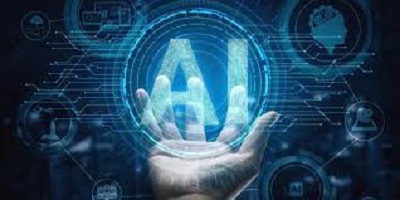1. The Meaning of Scientific Breakthroughs
A scientific breakthrough is a discovery, invention, or advancement that significantly changes the way we understand or interact with the world. Breakthroughs often come after years of research, experimentation, and persistent curiosity. They push the boundaries of knowledge, solve complex problems, and open doors to new technologies.
For example:
-
The discovery of electricity allowed the creation of modern electrical appliances.
-
The invention of the internet revolutionized communication and information sharing.
-
Advances in medicine, such as vaccines and antibiotics, have saved millions of lives worldwide.
Scientific breakthroughs are therefore milestones in human progress.
2. Breakthroughs in Medicine
One of the most impactful areas of scientific discovery is medicine. Over the centuries, medical breakthroughs have improved life expectancy, reduced disease, and enhanced quality of life.
-
Vaccines and Antibiotics – Vaccines have eradicated deadly diseases like smallpox, while antibiotics protect against bacterial infections.
-
Diagnostic Technologies – X-rays, MRIs, and ultrasound machines allow doctors to detect illnesses early and provide effective treatment.
-
Surgical Innovations – Robotic surgeries, minimally invasive procedures, and advanced surgical tools have transformed healthcare.
-
Genetic Research – DNA sequencing and gene therapy have revolutionized the treatment of hereditary diseases and are paving the way for personalized medicine.
These breakthroughs have not only saved lives but also improved the overall health and well-being of populations.
3. Breakthroughs in Communication
Communication has been dramatically transformed by scientific advancements.
-
Telecommunication – Telephones, mobile phones, and satellite communication allow instant contact across the globe.
-
The Internet – The internet has connected billions of people, enabling real-time communication, social networking, and information sharing.
-
Artificial Intelligence – AI-powered virtual assistants like Siri and Alexa facilitate quick access to information and perform daily tasks efficiently.
-
Social Media Platforms – Platforms like Facebook, Twitter, and Instagram have redefined how people interact socially, share knowledge, and express opinions.
These breakthroughs have created a connected world where distance and borders are no longer barriers to communication.
4. Breakthroughs in Transportation
Scientific discoveries have also revolutionized transportation, making the world more accessible and efficient.
-
Automobiles and Trains – Cars and trains allow fast travel between cities and regions, improving trade and commerce.
-
Airplanes – Air travel has made international travel quick and convenient.
-
Electric and Autonomous Vehicles – These innovations reduce pollution and increase safety on roads.
-
Space Exploration – Rockets and spacecraft allow humans to explore outer space and understand the universe better.
Transportation breakthroughs have connected nations, facilitated trade, and expanded human horizons.
5. Breakthroughs in Energy
Energy is the backbone of modern life, and scientific breakthroughs in this field have transformed industries and daily life.
-
Electricity – Harnessing electricity has powered homes, businesses, and industries worldwide.
-
Nuclear Energy – Provides large-scale power but also comes with safety considerations.
-
Renewable Energy – Solar, wind, and hydropower offer sustainable alternatives that help protect the environment.
-
Energy Storage – Advances in battery technology allow for efficient storage and use of energy in electronics, vehicles, and homes.
These breakthroughs are critical for sustainable development and meeting the growing energy needs of the world.
6. Breakthroughs in Information Technology
The field of information technology has been transformed by scientific breakthroughs that affect almost every aspect of modern life.
-
Computers and Smartphones – Computing power allows complex tasks to be performed quickly and efficiently.
-
Cloud Computing – Data storage and access have become easier, enabling global collaboration.
-
Artificial Intelligence – AI is used in industries, healthcare, research, and education to automate processes and improve decision-making.
-
Robotics – Robots perform tasks in manufacturing, healthcare, and even homes, enhancing productivity and efficiency.
These advancements have changed the way people work, learn, and interact with technology.


You must be logged in to post a comment.